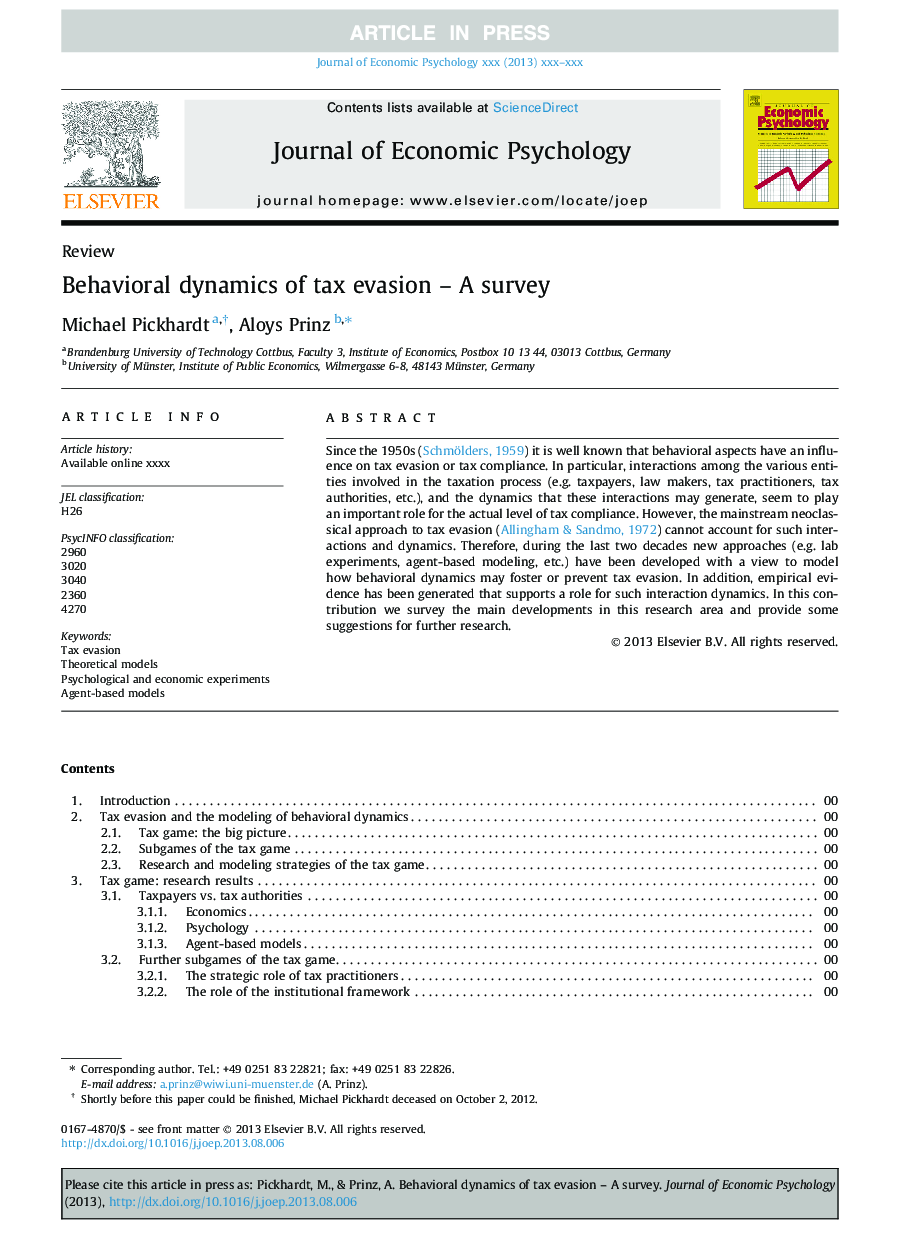| Article ID | Journal | Published Year | Pages | File Type |
|---|---|---|---|---|
| 7244827 | Journal of Economic Psychology | 2014 | 19 Pages |
Abstract
Since the 1950s (Schmölders, 1959) it is well known that behavioral aspects have an influence on tax evasion or tax compliance. In particular, interactions among the various entities involved in the taxation process (e.g. taxpayers, law makers, tax practitioners, tax authorities, etc.), and the dynamics that these interactions may generate, seem to play an important role for the actual level of tax compliance. However, the mainstream neoclassical approach to tax evasion (Allingham & Sandmo, 1972) cannot account for such interactions and dynamics. Therefore, during the last two decades new approaches (e.g. lab experiments, agent-based modeling, etc.) have been developed with a view to model how behavioral dynamics may foster or prevent tax evasion. In addition, empirical evidence has been generated that supports a role for such interaction dynamics. In this contribution we survey the main developments in this research area and provide some suggestions for further research.
Related Topics
Social Sciences and Humanities
Business, Management and Accounting
Marketing
Authors
Michael Pickhardt, Aloys Prinz,
